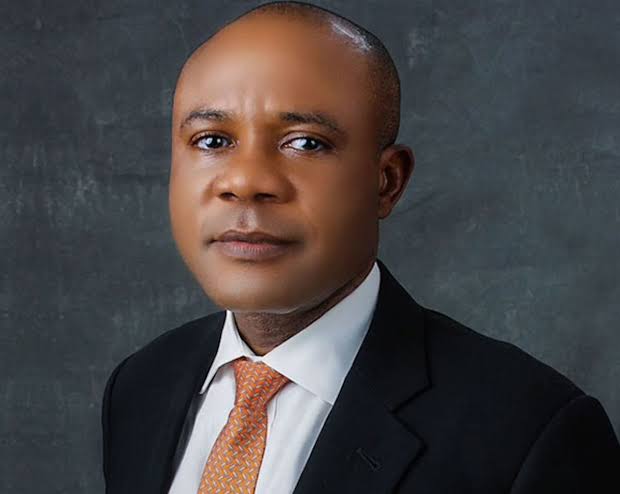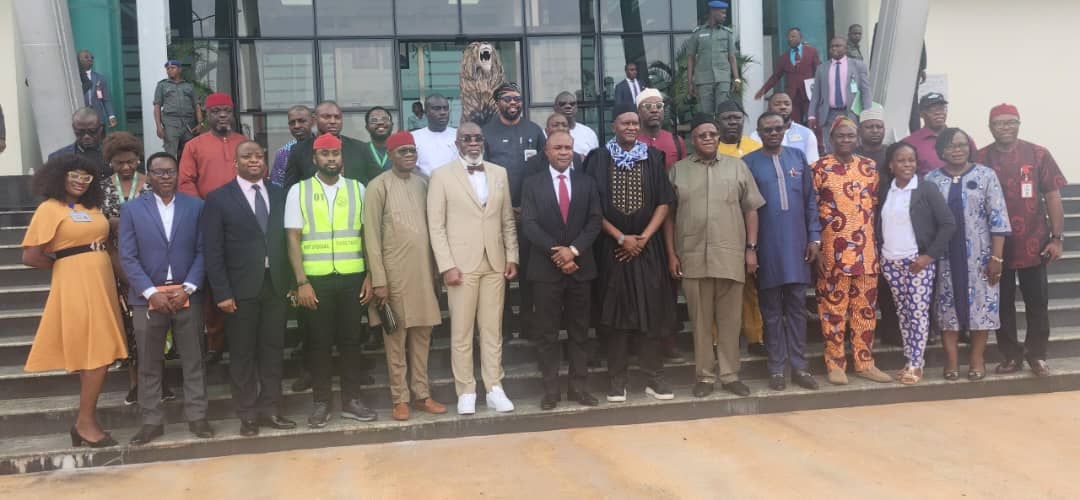
Nigeria may realise the projected $20 billion annual revenues from the export of agricultural produce if farmers are able to identify the real needs of the market in different parts of the world.
The Coordinator of the Federal Airports Authority of Nigeria (FAAN) Aviacargo Roadmap Committee, Ikechi Uko told THISDAY that Nigerian farmers should first carry out the study to know what different markets yearn for Nigerian agricultural produce and cultivate their farms to produce such crops in accordance to the given specification to meet those markets.
Uko was reflecting on the findings of the committee, which just returned from fact finding visit to Kotoka International Airport, Accra, Ghana as part of its benchmarking efforts in the air cargo business.
He said agriculture export starts from the farm; that the farmer has to identify the needs of the market and then plan how to grow farm produce that will meet the needs of that market.
Uko cited example with Kenya, saying that French beans is not a staple food in Kenya but Kenya cultivates it for export and earns millions of dollars annually exporting the produce to the countries that demand it.
“What we lack currently is market intelligence and strategic thinking. For example, Ghana imports eggs from Belgium; it has hatchery at its airport and uses the equipment to hatch the eggs for day-old chicks. That is strategic thinking. Here in Nigeria, we have the ability to produce the eggs, to hatch them and export them. So, we have to find the market by conducting market research. We need to know the exact thing the market needs. We have onions, but you don’t just export onions. Your onions may have chemical residues and may not be what the market needs; so, you tailor your produce to meet the market,” Uko said.
It is to discover these strategies and other vital information that prompted the FAAN Aviacargo Roadmap Committee to embark on fact finding mission to countries that have achieved a level of success in exporting agricultural produce to the world and earning huge resources in foreign exchange, which is what Nigeria is in dire need of today to give value to the naira.
THISDAY learnt that the FAAN Aviacargo Roadmap Committee was led by the Director of Commercial and Business Development, Olumyiwa Femi-Pearse to Ghana.
“The trip was with the support of the Ghana Civil Aviation Authority (GCAA) and the Ghana Airport Company Ltd (GACL). The trip is part of the effort by the Nigerian team to ramp up aviacargo business in Nigeria. Nigeria is currently ranked Number 5 in Africa behind aviacargo leaders Kenya, Egypt South Africa and Ethiopia. As the biggest economy and the largest population Nigeria receives over 10 fully loaded freighters weekly and most leave empty.
“To redress this, the government of Nigeria set up an Aviacargo Roadmap Committee with Ikechi Uko as the Coordinator of the project. During the Visit to Accra, Ghana they were received at the airport by the Ghana Civil Aviation Authority GCAA and the Ghana Airport Company Ltd GACL led by Rev. Alexander Kwaiku Yeboah the Air Cargo Safety Inspector for GCAA. Capt. Solomon Quainoo, the Director of MCDAN Aviation and the Group CEO Kweku Ampofi received the team at the MCDAN Group FBO,” the Committee said in a statement.
The team includes the General Managers of Business Development and that of Cargo Development, Hyacinth Ngwu and Kabiru A.N. Mohammed, respectively. Also, senior officers from both cargo and Business Development of FAAN with a representative from NAFDAC Mrs. Sanwoolu and another member of the Aviacargo committee Alex Nwuba were part of the team.
The team was taken to the aviance cargo, the oldest special purpose cargo terminal in Ghana for a tour of the first upscale cargo terminal in Ghana. The team also visited the Swissport Terminal which is the most modern cargo terminal in West Africa where they engaged with government agencies and some stakeholders. It also visited the Nigerian Embassy where the High Commissioner Ibok-Ete Ibas and the staff hosted the members. The High Commissioner thanked the Team for making out time to visit the embassy. He wants the team to make sure the report and findings are implemented.
“Nigeria is now learning from people who had earlier learnt from us. We should show more patriotism to restore Nigeria to its rightful position in the world,” he admonished.
The DCBD in his remarks told the High Commissioner that “the potential in Nigeria to do air cargo is massive but mostly untapped. We have seen the high-tech facilities at Addis Ababa, we have seen the output by Kenya and we have now seen the modest but functional adaptation by Ghana so we know exactly what to do. We have now woken up to the reality of the game.”
According to the committee, the group rounded off the tour with an engagement with the Ghana Export Promotion Agency (GEPA). The members were received by the Deputy CEO, Albert Kassim Diwura. After the engagement, the Coordinator of the Nigerian Aviacargo Roadmap Committee, Ikechi Uko, while thanking the government of Ghana for the reception of the team, wondered why the two countries are not working closer together.
“I observed that Ghana imports eggs from Belgium to hatch for day old chicks while eggs are rotting in North Central Nigeria. Why is Ghana importing mangos from Brazil to produce fruit juice for export. Why is Nigeria importing chocolate from Europe when Ghana can supply all we need. If Ghana is good at exporting yam, can we supply more yams to Ghana for increased exports. These will grow the two economies. We need to start this export thing at the regional level then expand globally,” he observed.
The Deputy CEO of GEPA, thanked the Nigerian visitors and said that he was happy that NAFDAC was part of the team as NAFDAC has been one of the obstacles faced by Ghanaian exporters to Nigeria. The NAFDAC representative was quick to assure him about the ease and transparency of the agency pointing out that importers come to the agency when their goods arrive instead of coming to get the approval before bringing in the goods. The visit to Ghana is the third international airport visited by the Aviacargo Committee. They had earlier visited the airports at Nairobi Kenya and Addis Ababa Ethiopia. They have also visited three airports in North Central Nigeria in Jos, Lafia and Abuja.
THISDAY






